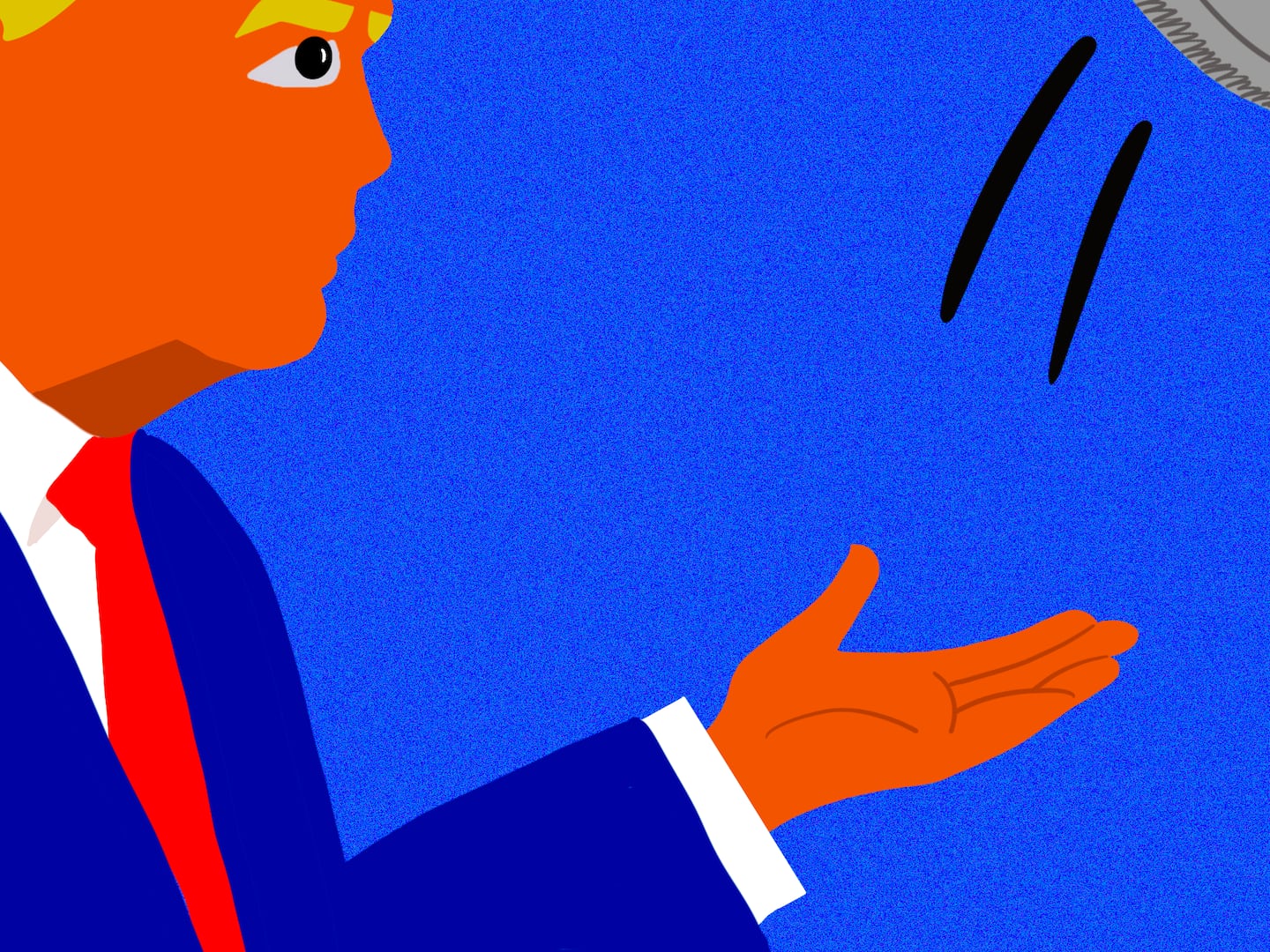The future of sex robots is closer than ever, and more and more people are open to having a romantic, sexual relationship with them.
Take Roxxxy, billed as the world’s first sex robot, not to be confused with sex dolls that can’t move or communicate. For just under $10,000, users can customize her or her male counterpart, Rocky, by selecting a hair style and color, eye color, skin tone, fingernail and toenail style, and even the shape and color of its pubic hair (if any). These robots converse, respond to touch, and perform movements such as hip thrusts.
Humans become attached to robots for a variety of reasons, so it’s not surprising that sometimes those feelings become romantic, even sexual. But what will this mean for how we define relationships?
According to a recent YouGov poll, 16 percent of American adults (24 percent of males and 9 percent of females surveyed) would consider having sex with a robot. A German study found that 40 percent of males could “imagine using” a sex robot in the next five years. Forty-nine percent of adults believe sex with robots will be common in the next 50 years, consistent with the increasing prevalence of sexbots, as well as predictions that robots will replace human prostitutes around the world.
Science fiction offers some insight into romantic and sexual human-robot relationships, from the psycho-sexual mind games between Ava and Caleb in Ex Machina, the murky ethics around Westworld’s customer-pleasing robots, and even Theodore Twombly’s relationship with his OS in Her. These robots are played by human actors, which makes it easy to forget they’re not actual human; even though Her’s Samantha doesn’t have a body, being voiced by Scarlett Johansson allows viewers to imagine she does. In real life, however, clear differences remain: Robots aren’t sentient (yet) and even the ones intended to emulate humans are easily distinguishable.
Some might assume those who opt for robotic sex partners are abnormal, but according to Nicole Prause, a neuroscientist who researches human sexual behavior and the CEO of Liberos, a sexual biotech company, “Robosexuality isn’t itself an independent diagnosis or disorder.” There are many reasons one might opt for a robotic partner, including eliminating worries about STDs and pregnancy, as well as judgment and performance anxiety. Some people struggle to interact with other humans for a variety of physical and/or psychological reasons—for example people who have had negative sexual experiences or relationships might fear dating or sex. Prause said that it’s healthy for people to engage in relationships with other people, but a robot is better than nothing.
A French woman named Lilly was 19 when she realized her attraction to robots. Relationships with human men confirmed her dislike of human touch, which researchers have linked to social anxiety. Lilly is now in love with her 3D-printed robot partner and plans to marry it when doing so becomes legal in France. Dr. David Levy, author of Love and Sex With Robots, expects human-robot marriage to be common by 2050.
Culture plays a role in people’s sexual and romantic preferences. Japan has experienced a spike in the number of otaku, men who love anime, robots, and computers to the extent that their interest in relationships and sex with humans decreases (one otaku married a character from the Nintendo DS game Love Plus). Shintoism, Japan’s dominant religion, holds that any object, manmade or not, has a spirit. If one believes robots have spirits, then they’re not just tools or machines—they’re beings. This belief challenges the notion that robots are soulless hunks of metal and makes many Japanese people less susceptible to the uncanny valley, the creeped-out feeling some get around human-like robots.
Associate Professor at the University of Michigan School of Information and author of Geek Heresy: Rescuing Social Change from the Cult of Technology, Kentaro Toyama, described via email his exploration of a phenomenon his research partner Alex Horak calls “unbundled relationships.” Technology and shifting social norms separate aspects of human relationships, most notably the division of love and sex, which began with prostitution. Toyama notes that advanced technology, both physical and digital, has accelerated this process—we can now unbundle the realities of relationships from fantasies thanks to video games, virtual reality, or robots.
The sticky question of robot sex and consent
While a robotic partner could offer some benefits, it also has problematic Stepford Wife implications. Roxxxy comes in “personalities,” ranging from “Wild Wendy” to “S&M Susan” to “Mature Martha” to “Young Yoko” (who is “over 18”) and even “Frigid Farrah,” raising concerns that encounters can approximate rape. Would sex-bots trivialize or obviate the notion of consent? Would users fail to understand that real intimacy entails challenges, compromise, and personal growth?
Prause likens sexbots to adult sex films: “Most adult viewers understand that the movies are entertainment—they’re not seeing real sex.” (Kids likely wouldn’t recognize that, which is why it’s important to limit both sex films and sexbots to adults). Sex robots, like sex films, don’t “magically turn you into something,” Prause said, “though they might reinforce preexisting views,” some of which could be dubious.
One current debate is whether sexbots or sex dolls could deter pedophiles or sadists from hurting humans. According to Prause, “discharge theory,” the idea that humans can satisfy illegal or dangerous desires elsewhere safely, isn’t supported by data gathered thus far. Those who oppose sex-bots worry that they will instead encourage people to continue dangerous sexual practices. Regardless of one’s beliefs, it’s important to remember that sex-bots, like all technology, are amoral—their positive or negative consequences depend on how they’re used, and no one knows for sure what the ramifications will be.
Such uncertainty consigns robots to a liminal status in many people’s minds and in the eyes of the law. Linda MacDonald Glenn, a lawyer, futurist, and bio-ethicist, said in an interview that “the law is evolving to recognize that the property versus person designation is too rigid.” Not long ago women, slaves, and children were regarded more as property than persons. Glenn is particularly interested in people’s “evolving notions of personhood,” as well as how we as a society decide the “moral and legal status of personhood.” While “all humans are legal persons,” Glenn said, “not all legal persons are human,” such as corporations, municipalities, and ships. An EU Commission suggests granting advanced robots corporate personhood regardless of whether robots become sentient.
If one views a robot as property, then “sex with a robot isn’t any different than using a vibrator,” Glenn says, and thus, consent isn’t an issue. But if someone considers oneself in an intimate relationship with a robot—a being, rather than a tool—then the robot’s lack of free will becomes tricky. Is the robot a sex slave at that point? Sentience would make that question even more complicated.
Like other robot rights advocates, Glenn notes a parallel between robots and animals. Some states designate pet owners as “guardians,” a term that suggests pets aren’t just property. Many robots fit into a similar category because of their form and function. Glenn believes the law is becoming “more of a continuum” because when people “start making new choices, the law follows.”
Descartes once called animals “soulless machines,” but neuroscientists at the University of Cambridge declared that animals are conscious. New Zealand, meanwhile, has outlawed animal testing, while India legally recognizes dolphins as “non-human” persons. Humans have changed their valuation of beings—both human and otherwise—throughout history. The question is what that will mean for us when it comes to sexbots.
Neither Glenn nor Prause anticipate that sex-bots will strip away our humanity or that human sexual relationships will go the way of the Dodo. People need human touch. Prause referred to a study in which subjects were massaged by a bare-handed person and a person wearing gloves. Subjects responded more favorably, both experientially and neuro-chemically, to being touched by hand. While sex-bots will arouse curiosity (and more) in some, humans will continue seeking physical contact with other humans. If Homo Sapiens become extinct, it won’t be because we stopped copulating; fears of robots “taking over” perhaps conflate with some people’s discomfort about bringing our mechanical counterparts into the bedroom.
Prause takes the long view on this trend. “With every sex technology, there’s a new panic,” she said. When vibrators were first invented, some people were convinced women wouldn’t sleep with men anymore. An important component of relationships, and one human-robot interactions don’t fulfill, is knowing that the other person desires to be with you. Sex-bots don’t have a choice in the matter, so they can’t satisfy the human need to be wanted—at least, not yet. We’ll integrate robots into our sexual relationships, and that will affect society some.
“But,” Prause said confidently, “it won’t upset the apple cart.”






